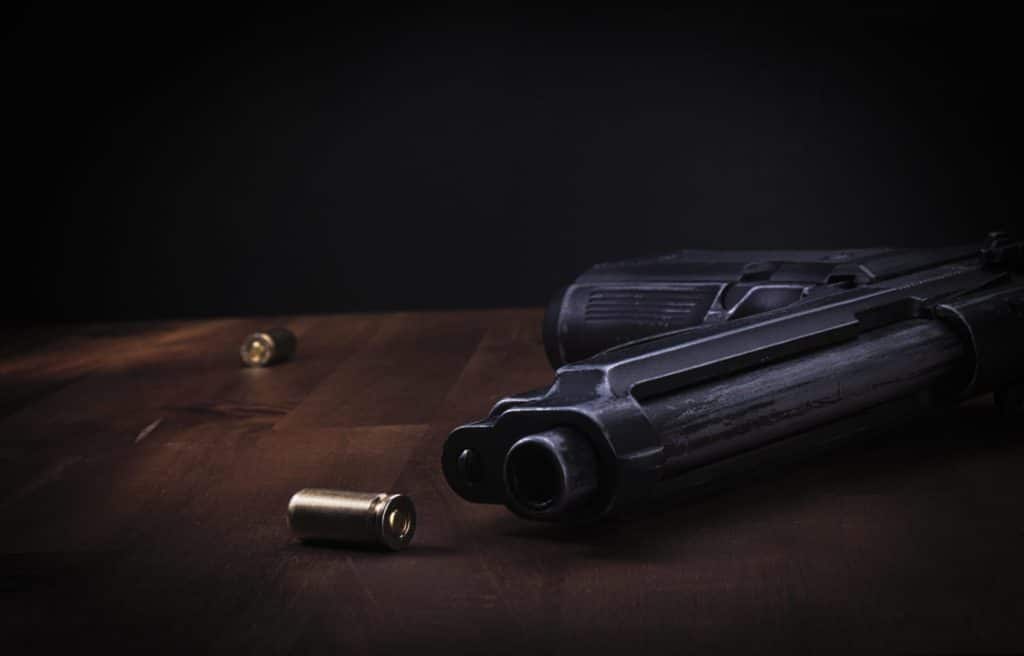The Second Amendment and going armed while intoxicated
Ever wonder how your Second Amendment rights impact your ability to go armed while intoxicated? In Wisconsin, possession of a firearm while intoxicated is a misdemeanor, punishable by up to 9 months in jail, $10,000.00 in fines, or both. The “intoxication” portion of this charge focuses on alcohol and all controlled substances. But the Second Amendment guarantees “… the right of the people to keep and bear Arms, shall not be infringed.”
Well, certainly the government is infringing on the right of an individual, right? Apparently not. In this blog post we discuss the law surrounding your ability to possess a firearm while intoxicated and a recent case decided by the Supreme Court of Wisconsin addressing this issue.
If you face charges connected to any kind of firearm crime or drunk driving, contact Van Severen Law Office immediately. Our criminal defense attorneys are regularly recognized as among the best in Wisconsin. We answer phones 24/7 and can quickly begin fighting your case. Contact us at (414) 270-0202.
The law: Section 941.20(1)(b) of the Wisconsin Statutes
Section 941.20(1)(b) of the Wisconsin Statutes states that it is a Class A misdemeanor to:
Operate or go armed with a firearm while he or she is under the influence of an intoxicant.
Wisconsin Criminal Jury Instruction 1321 provides the elements of endangering safety by use of a dangerous weapon: operating or going armed with a firearm while under the influence of an intoxicant. Those instructions help to clear up a few important definitions. The instructions indicate the following requirements:
- The defendant operated or went armed with a firearm; and
- The defendant was under the influence of an intoxicant at the time he operated or went armed with a firearm.
The term “firearm” means a weapon that acts by the force of gunpowder. The phrase “went armed” means that a firearm must have been on the defendant’s person or that a firearm must have been within the defendant’s reach. In addition, the defendant must have been aware of the presence of the firearm.
Finally, “under the influence of an intoxicant” means that the defendant’s ability to handle a firearm was materially impaired because of the consumption of an alcoholic beverage. Importantly, not everyone who consumes alcoholic beverages is “under the influence.” This is certainly a subjective analysis that requires a finding “the person has consumed a sufficient amount of alcohol to cause the person to be less able to exercise the clear judgment and steady hand necessary to handle a firearm.” Section 941.20(1)(bm) focuses on a version of this offense involving any detectable amount of a controlled substance.
State v. Mitchell L. Christen – SCOW considers going armed while intoxicated and the Second Amendment
Defendant Christen, his roommates, and his roommates friends were drinking alcohol on February 2, 2018. At one point a confrontation occurred and Christen armed himself. Testimony about where Christen pointed the firearm differed, but everyone agreed that he possessed it. This differentiation was important at trial, but for our purposes the simple possession of the weapon matters most.
Christen moved the trial court to dismiss charges against him arguing that the charge itself violated his Second Amendment right. The trial court concluded Wis. Stat. 941.20(1)(b) “is focused narrowly enough to withstand [the] constitutional challenge that’s been raised” and denied the motion. The Court of Appeals agreed. Christen requested the Supreme Court of Wisconsin review the case.
SCOW concluded “The right to keep and bear arms is an individual ‘core’ right protected and is a ‘right of law abiding, responsible citizens to use arms in defense of hearth and home'” District of Columbia v. Heller, 554 U.S. 570 (2008)). The Court went on to point out that in certain circumstances, individuals should be prohibited from possessing firearms. Those cases cover the mentally ill, felons, and possession of firearms in sensitive places such as government buildings. The Heller court found those prohibitions “presumptively lawful.”
SCOW applied “intermediate scrutiny” and held that Christen’s “as applied” challenged failed. The decision focused on the State’s legitimate interest in protecting individuals from harm caused by the combination of firearms and alcohol. It noted the defendant’s right to possess and carry a weapon for self-defense was not significantly burdened by the prohibition. The Supreme Court of Wisconsin upheld previous decisions and denied Christen’s request.

Contact our criminal defense attorneys immediately regarding your charges
Frequently going armed while intoxicated charges accompany drunk driving charges. Police stop your vehicle for OWI and find that your also possess a firearm. Our criminal defense attorneys aggressively defend both firearm and drunk driving cases.
Contact our criminal defense attorneys immediately. It’s important that we start fighting your case from the very beginning. You can reach us 24/7 at (414) 270-0202.


